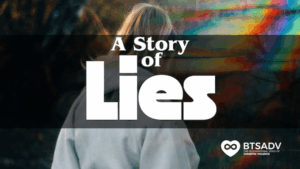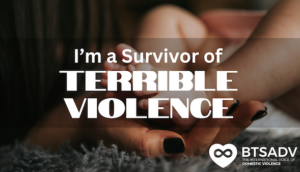
By Sunny Lim
Codependent relationships are the opposite of healthy relationships. Codependency isn’t exclusive to romantic relationships–it can be present in friendships and family relations as well.
Being codependent is defined as excessive reliance on a person for approval, self-esteem, and identity. Through this condition, the other person often enables the codependent partner feeding into the partner’s insecurity, lack of self-confidence, and poor decision-making skills.
According to Co-Dependents Anonymous International, a recovery program for people seeking ways to develop healthy relationships, these are some signs of codependent behaviors:
- They have difficulty making their own decisions;
- They value other people’s approval over their own;
- They struggle with identifying their desires and emotions;
- They have trouble setting healthy boundaries;
- They struggle with admitting they made a mistake;
- They see themselves as unselfish and dedicated to helping others;
- They don’t see themselves as people who deserve love and support.
Traditionally, codependency was seen as two people coming together in a relationship with dysfunctional characteristics such as meshing together instead of maintaining separate identities. Some examples of codependent relationships include couples who seem unhappy together but stick together because one or both adults believe they deserve mistreatment in relationships. Another example of a codependent relationship is when one partner has a chemical dependency (e.g. alcoholism, drug abuse), and the other partner enables the addictions by making their self-esteem dependent on the actions of the partner struggling with substance abuse.
Relationships are not passive–all parties are active participants, so the codependent partner is also playing a role in the dysfunction of the relationship.
Codependent relationships are often one-sided, dysfunctional, and in some cases abusive.
In the simplest definition, codependent relationships are when one partner is needy and dependent on the other person. The codependent partner will plan their life and decisions around the other person to serve them. The other partner likes the attention and treatment from the codependent partner. This creates a cycle of codependency where one partner will sacrifice their identity to please the other, and the other partner will enjoy the attention.
The list above consists of behavioral patterns of codependent people, but there are also other warning signs that show your relationship is codependent:
- You’re always the one sacrificing and giving, but your partner only takes;
- Supporting your partner is great, but you take on all of your partner’s problems and wounds, and you feel weighed down;
- You idealize the notion of saving your partner and believe they will change their ways;
- You excuse your partner’s actions most of the time and don’t hold them accountable;
- You’re fearful of the relationship ending, so you’ll do anything for the relationship to continue even if it means accepting mistreatment.
Here are some additional questions to consider regarding codependency:
- Do you have trouble spending time alone away from your partner?
- Does your relationship define you?
- Do you use ‘we’ more than ‘I’ in your conversations?
- Is there constant fighting and arguments?
- Do you need your partner to regularly reassure you that they love you?
It can be difficult to answer these questions yourself, but it’s important to take a hard look at your relationship and its dynamics. Sometimes it’s hard to consider your own relationships in an objective way. If you have a trusted friend or family member, it could be helpful for them to answer these questions based on their knowledge of your relationship.
Although codependency is unhealthy and toxic, here are some suggested ways to regain healthy behaviors in your relationship:
- Take control of your life by working on your own areas that need improvement;
- Find meaning outside your relationship (e.g. spending time on hobbies or joining interest groups);
- Turn to close friends or family members for advice and spend time with them, so you don’t have to focus on your partner for everything;
- Establish healthy boundaries with your partner ;
- Communicate honestly with your partner about thoughts regarding the relationship and where they’re at;
- Be patient with one another;
- Get outside help through individual counseling or couples therapy;
- In some cases, people don’t want to confront and fix their codependency, so put your well-being first, cut your losses, and move on from the relationship.
For support regarding codependent relationships, there are online, in-person support groups, and forum discussions such as Daily Strength and Co-Dependents Anonymous. Trusted friends and family members are good pillars of support as well as online psychology articles that explain the roots of codependency.
If you or someone you know is in an abusive relationship, there is help. You can visit the Break the Silence website at www.breakthesilencedv.org or chat with one of our helpline advocates at 855-287-1777.


